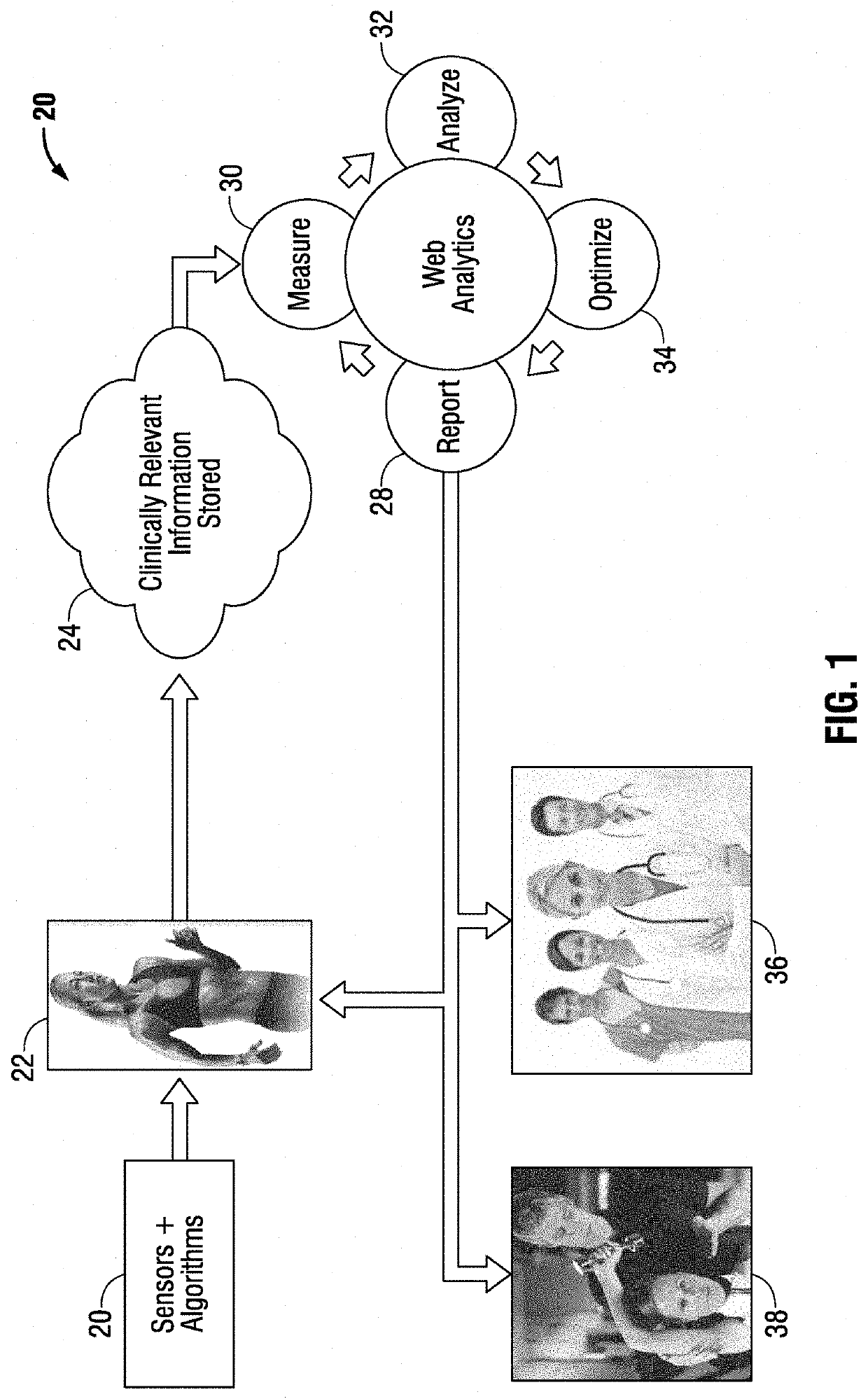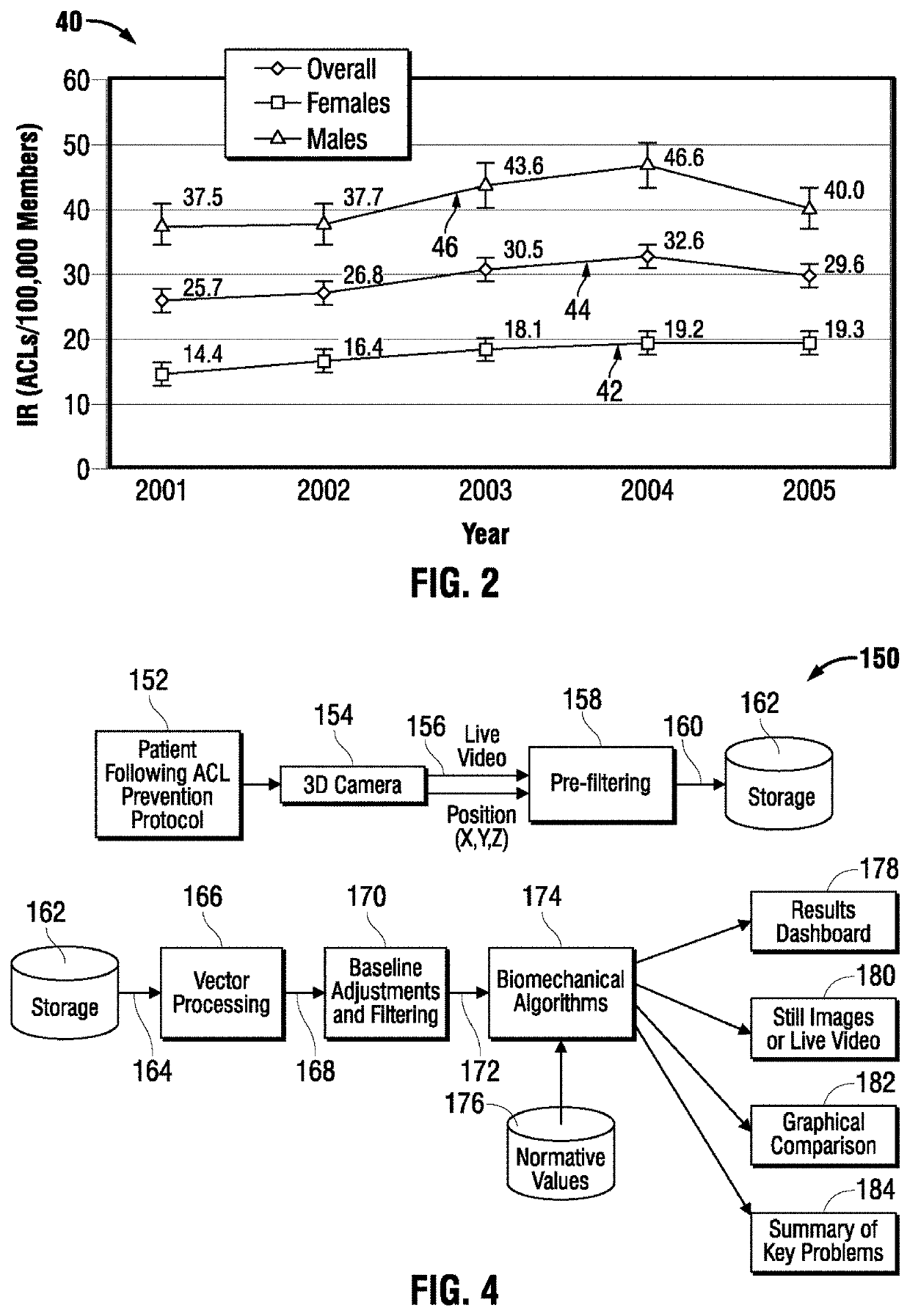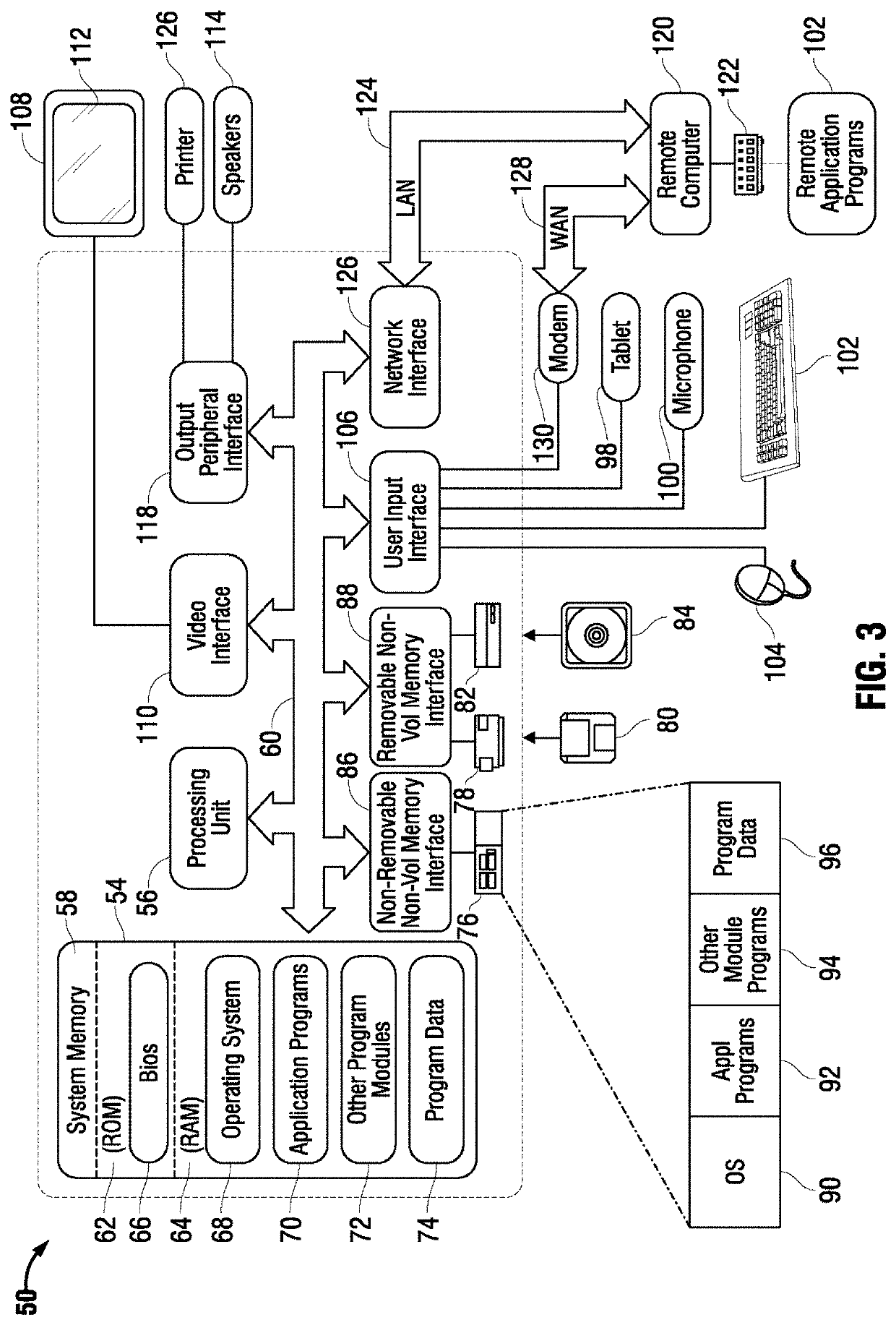Simulation of physiological functions for monitoring and evaluation of bodily strength and flexibility
a physiological function and simulation technology, applied in the field of simulation of physiological functions for monitoring and evaluation of bodily strength and flexibility, can solve the problems of recurrent injuries in less gifted amateur athletes, unable to keep all of this information in a form, and repeating measures over time is difficult, if not impossible, so as to improve important and accurate acl measurements
- Summary
- Abstract
- Description
- Claims
- Application Information
AI Technical Summary
Benefits of technology
Problems solved by technology
Method used
Image
Examples
Embodiment Construction
[0052]The detailed description set forth below in connection with the appended drawings is intended as a description of exemplary embodiments in which the presently disclosed process can be practiced. The term “exemplary” used throughout this description means “serving as an example, instance, or illustration,” and should not necessarily be construed as preferred or advantageous over other embodiments. The detailed description includes specific details for providing a thorough understanding of the presently disclosed method and system. However, it will be apparent to those skilled in the art that the presently disclosed process may be practiced without these specific details. In some instances, well-known structures and devices are shown in block diagram form in order to avoid obscuring the concepts of the presently disclosed method and system.
[0053]In the present specification, an embodiment showing a singular component should not be considered limiting. Rather, the subject matter ...
PUM
 Login to View More
Login to View More Abstract
Description
Claims
Application Information
 Login to View More
Login to View More - R&D
- Intellectual Property
- Life Sciences
- Materials
- Tech Scout
- Unparalleled Data Quality
- Higher Quality Content
- 60% Fewer Hallucinations
Browse by: Latest US Patents, China's latest patents, Technical Efficacy Thesaurus, Application Domain, Technology Topic, Popular Technical Reports.
© 2025 PatSnap. All rights reserved.Legal|Privacy policy|Modern Slavery Act Transparency Statement|Sitemap|About US| Contact US: help@patsnap.com



